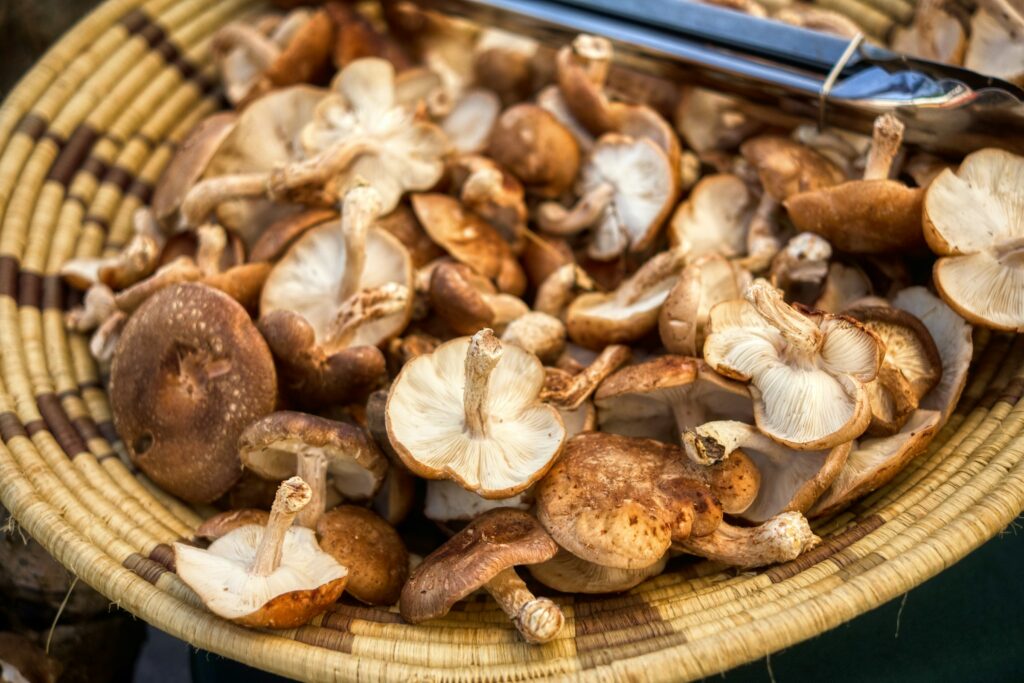Going on the mushroom diet is becoming a popular trend among health and wellness enthusiasts, especially in Australia. While many people are familiar with eating mushrooms as a side dish or in soups, not many are aware of the numerous health benefits that come with eating this superfood on a regular basis.
The Mushroom Diet
The mushroom diet is based on the principle that eating mushrooms can improve your overall health and well-being. This is because mushrooms contain essential nutrients, antioxidants, and anti-inflammatory compounds that are essential for good health. Some of the specific benefits of the mushroom diet include:
- Improved cognitive function – Certain types of mushrooms, such as lion’s mane and reishi, contain compounds that have been shown to improve cognitive function and memory. This makes the mushroom diet ideal for people who want to enhance their brain power and memory. Healthline, in particular, cited a number of studies pointing at lion’s mane mushrooms lowering the risk of dementia by stimulating new brain cells and eliminating amyloid plaques that damage brain stimulus channels.
- Enhanced immunity – Mushrooms are rich in beta-glucans, compounds that have been shown to enhance the immune system. By eating mushrooms, you can help boost your immunity and reduce the risk of various diseases and infections.
- Better digestion – Some mushrooms, such as Shiitake and Maitake, contain enzymes that help improve digestion and reduce digestive problems such as bloating and constipation.
- Lower blood sugar levels – Some types of mushrooms, such as cordyceps, have been shown to lower blood sugar levels, making the mushroom diet ideal for people with diabetes.
- Weight loss – Mushrooms are low in calories and high in fibre, making them an excellent addition to any weight loss diet. By eating mushrooms, you can feel full for longer and reduce your overall calorie intake.
If you are looking to go on the mushroom diet, it is important to consult with a healthcare professional to ensure that it is safe for you. Additionally, you should make sure to choose high-quality mushrooms that have been sourced from reputable suppliers.
Types of Mushrooms
So, what specific mushrooms should you be eating for maximum health benefits? The following are some of the most recommended types.
Shiitake

These mushrooms are rich in antioxidants and contain compounds that can help to reduce inflammation. They are also high in vitamin D, which is essential for healthy bones and immune function.
Reishi
Reishi mushrooms are known for their ability to boost the immune system and have anti-cancer properties. They are also said to help reduce stress and improve sleep quality by relaxing the nervous system, especially when a dinner dish includes reishi as an ingredient.
Chaga

Chaga mushrooms are rich in antioxidants and are known to have anti-inflammatory and anti-cancer properties. They are also said to help boost the immune system and improve overall health.
Maitake
Often found in oak trees, maitake mushrooms are known for their ability to help regulate blood sugar levels, making them an ideal food for people with diabetes. They are also rich in antioxidants and anti-inflammatory compounds. Maitakes are also labelled as the “king of mushrooms” as a single cluster could actually weigh over 20 kilos; some extracted maitakes even topped 40kg.
Oyster

Oyster mushrooms are low in calories and fat and are a good source of protein. They are also rich in antioxidants and are known to have anti-inflammatory properties.
Lion’s mane
Lion’s mane mushrooms contain compounds that have been shown to improve cognitive function and memory. These are also rich in antioxidants and anti-inflammatory compounds.
Cordyceps
Best known currently as the source of a major TV drama series’ general plot, cordyceps mushrooms are known for their ability to lower blood sugar levels and improve heart health. These are also rich in antioxidants and anti-inflammatory compounds. Superfoods Australia noted that cordyceps mushrooms also improve athletic performance by stimulating the production of ATP, which adds more energy to muscle cells and enables the body to absorb more oxygen.
The pandemic, though, gave Aussies a hard lesson in acquiring mushrooms. As with the above mushrooms that are healthy, there are also those that must be avoided at all costs because of health issues, despite Aussies’ penchant for foraging.
Earthball
Earthball mushrooms are shaped like scaly balls or potatoes with no stems. When sliced open, the interior is a dark violet-black mass, which denotes spores being created prior to release. Eating an earthball by accident triggers gastrointestinal ailments such as nausea and diarrhoea.
Haymaker
Commonly found in lawns growing in group clumps, the haymaker mushroom is identified by its thin brown stalks and a hemispherical brownish cap up top measuring up to four centimetres in diameter. The haymaker is noted for generating hallucinations in children that eat them by accident.
Yellow-stained mushroom
The yellow-stained mushroom is identifiable by its white or yellowish steam and yellow spots on the cap itself (in the same shade of yellow as egg yolks), but its overall shape can be mistaken for regular edible mushrooms. Some mushroom experts claim it emits a very pungent odour like kerosene and maybe more when cooked. Symptoms of eating a yellow-stained mushroom include diarrhoea and vomiting.
Green-spored parasol
Also known as the false parasol, the green-spored parasol is easily mistaken for edible mushrooms. It is mostly characterised by a large cap with shades of brown that flake off to expose the white mass underneath and a thick white and brown stem. Health officials have expressed concern over consuming it triggering episodes of severe vomiting and diarrhoea, loss of electrolytes, even fatal ingestions in children.
Safety Precautions
The Queensland health authorities took note of certain varieties that are prevalent in the state and advised calling the Triple Zero emergency hotline or the Poisons Information Centre (131126) for help.
Eating mushrooms may be a wonderful addition to a senior’s diet given adequate education on what to acquire and important precautions in cooking them. It’s even a lot better if you have a loved one to help you prepare them.
The A.S.A.G. Reverse Mortgage
The A.S.A.G. Reverse Mortgage can help seniors manage their dietary plans effectively. By accessing the funds tied up in your home equity, you can finance a suitable diet or pursue other retirement-related goals that promote a healthier lifestyle. Additionally, consulting with both your family and a certified dietitian can assist in creating a personalised meal plan for you.
For more information about our equity release options, please contact A.S.A.G. You can reach us by phone at 1300 002 724 or via email at info@asagfirst.com.au.
You can also use the free tool below to assess your home equity.
DISCLAIMER: This article is for informational purposes only and does not reflect official nutritional advice. The Australian Seniors Advantage Group has no relations with any mushroom grower.
Please call the Triple Zero emergency hotline or the Poisons Information Centre (131126) for assistance.